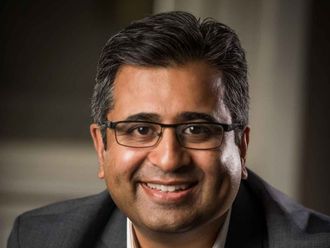
Mumbai: For equity investors in India, risk factors — both political and economic — would be on top of the agenda this week and next, even as the injection of cheap cash in Europe swells global liquidity and the prospect of more foreign fund inflows.
Election results due on Tuesday from five states, including the most populous Uttar Pradesh, would have a bearing on the ruling coalition in New Delhi and its ability to pursue hard-nosed policies that are needed to revive slowing growth.
The results would also be a litmus test of popular support for Prime Minister Manmohan Singh's Congress party, the main opposition Bharatiya Janata Party and regional groupings before general elections due in 2014.
The Congress party has huge political capital at stake in Uttar Pradesh, home to several former prime ministers including Jawaharlal Nehru, Indira Gandhi and Rajiv Gandhi. The star campaigner for the party was Rahul Gandhi, heir to the Nehru-Gandhi dynasty, hoping to significantly improve the party's tally from a miserable 22 members in the 403-seat outgoing state assembly.
The party is expected to improve on that tally, and if it manages to cobble together a coalition with the regional Samajwadi Party, which is tipped to win the most seats, it would give a shot in the arm for the central government.
"Given the uncertainties, the market will be in consolidation mode," said equity strategist V. Venugopal. "We have had a decent run up and it's time to take some money off the table."
The top-30 Sensex fell 1.6 per cent last week, adding to the 2 per cent drop the week before, but the widely-tracked benchmark is still up more than 14 per cent in 2012 thanks to foreign portfolio investments of $7.4 billion (Dh27.21 billion).
A poorly managed stake sale in Oil and Natural Gas Corp, the country's largest oil producer, by the government could also make investors, particularly large foreign funds, cautious, Venugopal said.
Bailout
The $2.6 billion offering through a one-day auction to institutional investors was bailed out by state-owned Life Insurance Corp after big foreign investors stayed away due to whimsical subsidy burden placed on the state-run company and the premium floor price set for bids.
New Delhi has pumped billions of dollars into social spending for the poor, hoping to garner their support for elections, but much of the money have been siphoned off by politicians, bureaucrats and middlemen many of whom now face police probes.
The massive spending has blown a hole in India's budget, ballooning the fiscal deficit to about two per centage points more than the targeted 4.6 per cent of GDP in 2011-12. The government's inability to sell stakes in state companies — it had set a Rs400-billion (Dh30.76 billion) target for 2011-12 — also added to the problem.
Economic growth in the December quarter slowed to 6.1 per cent, the weakest in almost three years, and well off the 8.6 per cent expansion in the previous year, as investments in productive sectors slumped while a series of rate increases squeezed consumer spending and hurt profit margins.
All eyes are now on the annual budget on March 16. A reasonable showing in the state elections would embolden the government to push reforms such as opening up the retail sector to large foreign chains like Wal-Mart and Carrefour, liberalising foreign investment rules in the banking, insurance and airlines sectors.
A day before, the budget the Reserve Bank of India (RBI) is scheduled to review policy and there is a strong likelihood it would cut rates, although any spike in global oil prices could put off the central bank.
BNP Paribas said leading indicators suggested the economy may have bottomed out in the December quarter, while a fall in inflation on the back of a seasonal decline in food prices would open the door for the RBI to support growth.
"Much has gone right for India in 2012," analysts Manish Raychaudhuri and Gautam Mehta wrote in a note to clients. "But valuations (14.5x 12-month fwd P/E) may have priced in most of the positives. March could see ‘news flow' driven volatility due to election results, RBI policy and budget."
The writer is a journalist based in India.












